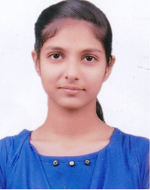Exercise - Question:
Que: Answer the following questions.
(i) What is atmosphere?
(ii) Which two gases make the bulk of the atmosphere?
(iii) Which gas creates green house effect in the atmosphere?
(iv) What is weather?
(v) Name three types of rainfall?
(vi) What is air pressure?
Ans:
(i) A huge blanket of air by which our earth is surrounded called atmosphere.
(ii) (a) Nitrogen (b) oxygen.
(iii) Carbon dioxide.
(iv) Weather is hour-to-hour, day to day condition of the atmosphere.
(v) (i) Convectional rainfall, (ii) orographic rainfall, (iii) cyclone rainfall.
(vi) Air pressure is definedas the preesure excreted by the weight of air on the earth's surface.
Que: Tick the correct answer.
(i) Which of the following gases protects us from harmful sun rays?
(a) Carbon dioxide
(b) Nitrogen
(c) Ozone
(ii) The most important layer of the atmosphere is
(a) Troposphere
(b) Thermosphere
(c) Mesosphere
(iii) Which of the following layers of the atmosphere is free from clouds?
(a) Troposphere
(b) Stratosphere
(c) Mesosphere
(iv) As we go up the layers of the atmosphere, the pressure
(a) Increases
(b) Decreases
(c) Remains the same
(v) When precipitation comes down to the earth in the liquid form, it is called
(a) Cloud
(b) Rain
(c) Snow
Ans:
(i) - (c)
(ii) - (a)
(iii) - (b)
(iv) - (b)
(v) - (b).
Que: Match the following.
(i) Trade Winds (a) Incoming solar energy
(ii) Loo (b) Seasonal wind
(iii) Monsoon (c) Horizontal movement of Air
(iv) Wind (d) Layer of ozone gas
(e) Permanent wind
(f) Local wind
Ans:
| Column I | Column II |
| (i) Trade winds | (e) Permanent wind |
| (ii) Loo | (f) Local wind |
| (iii) Monsoon | (b) Seasonal wind |
| (iv) Wind | (c) Horizontal movement of air |
Que: Give reasons.
(i) Wet clothes take longer time to dry on a humid day?
(ii) Amount of insolation decreases from equator towards poles?
Ans:
(i) Because on a humid day, there is more water in air than a sunny day. So, air can soak less water from wet clothes, i.e. rate of evaporation decreases.
(ii) Because sun rays fall vertical on the equator while slanting on the poles.



